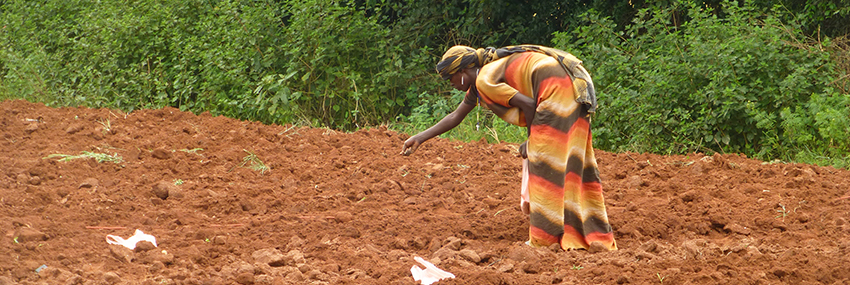
African Center of Excellence for Climate Smart Agriculture and Biodiversity Conservation at Haramaya University
In Sub-Saharan Africa (SSA), smallholder farmers produce 90% of the food supply, each producing on less than 2 hectares of land. The agricultural productivity in SSA is also lower than other developing regions due to many constraints, such as land degradation, poor market access, and declining soil fertility. Agriculture in this region is heavily impacted by climate change, which has contributed to the cycle of poverty and recurrence of food shortages in Africa for several decades in the past. Ethiopia, an ancient land where agriculture has been practiced for over 3000 years, faces all of these challenges.
In partnership with the Purdue Center for Global Food Security, and with financial support of the World Bank, an ‘African Center of Excellence (ACE II) for Climate Smart Agriculture and Biodiversity Conservation’ was recently established at Haramaya University, the premier institution of agricultural higher education in Ethiopia. Climate smart agriculture is defined as innovative production systems that integrate crop and livestock genetic improvement with management practices that increase productivity in a changing climate, offers a great potential to increase sustainable productivity and resilient farming systems to climate effects, and mitigate impacts of climate change through greenhouse gas emission reductions and carbon sequestration.
The general objective of the Haramaya University ACE II for Climate Smart Agriculture and Biodiversity Conservation is to improve the quality of postgraduate education and research in eastern and southern Africa to foster enhanced capacity to adapt and mitigate effects of climate change and weather variability, and ensure biodiversity conservation more effectively in the region. With support from faculty and graduate students at Purdue, the program will:
- Produce skilled MSc and PhD graduates in climate smart agriculture and biodiversity conservation.
- Generate new knowledge and quality research outputs, as well as promote technological innovations to address national and regional development challenges.
- Enhance knowledge, skills, scholarship, and research culture of faculty and technical personnel at universities to lead a more effective, result-oriented, and high quality post-graduate training with innovative research.
- Upgrade teaching and research facilities.
- Strengthen national, regional, and international collaborations and partnerships to enhance exchange of science and technology skills, experience, and expertise.
- Foster specialization in specific areas of excellence and collaboration with emerging higher education institutions.
Purdue’s multi-disciplinary team of faculty from academic units in the Colleges of Agriculture, Engineering and Liberal Arts are assisting with curriculum development, teaching, and research for the ACE II Program. Opportunities are developing for expanding faculty involvement and integrating Purdue’s graduate students into the program with their Haramaya counterparts over the next 5 years.
